Earthquake Aftermath: Protecting Your Septic System
 |
| Earthquakes and Septic Tanks |
Earthquakes can have devastating effects on infrastructure, and one crucial aspect that often requires immediate attention is the septic system. In the aftermath of an earthquake, it is imperative to prioritize safety and take necessary measures to protect and maintain the integrity of septic systems. The most recent Earthquake in Alaska as reported by the Alaska Earthquake Center, is unknown how much damage has been caused. It is time to check your Septic System for Earthquake Damage.
New York Times Alaska Earthquake
This article aims to provide a comprehensive guide on how to care for and protect your septic system after an earthquake, covering topics such as recognizing signs of damage, conducting inspections and pumping, and preventing further damage.
When an earthquake occurs, it can cause significant damage to septic systems, leading to potential health hazards and environmental contamination if not addressed promptly. Recognizing signs of damage is the first step in mitigating potential risks. This article will discuss common indicators of septic system damage, such as overflowing toilets or drains, foul odors, damp areas in the yard, or unusual sounds coming from the plumbing. By understanding these signs, homeowners and property owners can promptly identify and address any issues with their septic systems, ensuring the safety and functionality of the system.
Additionally, this article will provide guidance on the importance of contacting a septic contractor for inspection and pumping to assess the system's condition and address any potential problems. Furthermore, it will offer preventive measures to minimize further damage, such as avoiding excessive water usage, not flushing harmful substances down the drains, and implementing proper maintenance practices.
By following the recommendations provided in this article, individuals can effectively protect their septic systems and contribute to the overall safety and well-being of their communities in the aftermath of an earthquake.
Key Takeaways
- Recognize signs of septic system damage such as overflowing toilets or drains, foul odors, damp areas in the yard, and unusual sounds from plumbing.
- Contact a septic contractor for inspection and pumping to assess the system's condition and address potential problems.
- Avoid excessive water usage and do not flush harmful substances to minimize further damage to the septic system.
- Promptly seek professional assistance from septic contractors experienced in earthquake damage to inspect, repair, and maintain the septic system after an earthquake.
Earthquake Damage Signs
Signs of potential damage to a septic system after an earthquake include water rising up from the ground, foul odors, visible damage to the septic tank lid, slow drains, mushy spots in the yard, and an unusually lush appearance of grass over the septic area. These signs serve as indicators that the septic system may have been compromised and require immediate attention.
Assessing the risk and being prepared for such situations is crucial to minimize the potential damage and ensure the safety of individuals and the environment. Assessing the risk of septic system damage after an earthquake involves being vigilant for any signs or symptoms mentioned above.
Water rising up from the ground can be a clear indication that the septic tank or pipes have been damaged and are leaking. Foul odors may suggest a sewage leak, which can be hazardous to both human health and the surrounding ecosystem. Visible damage to the septic tank lid, such as cracks or displacement, is another red flag that the system may have been compromised. Slow drains and mushy spots in the yard can be a result of blockages or broken pipes. Lastly, an unusually lush appearance of grass over the septic area may indicate that excess wastewater is being dispersed, potentially due to a damaged distribution system.
Being aware of these signs and promptly addressing any suspicions of septic system damage is essential for emergency preparedness and mitigating the potential risks associated with post-earthquake scenarios.
Inspection and Pumping
Inspection and pumping services from a septic contractor should be sought to assess the condition of the septic tank and address any potential damage. After an earthquake, it is crucial to have a professional inspection to determine the extent of the damage and ensure the septic system is functioning properly. A septic contractor has the expertise and specialized equipment to thoroughly inspect the septic tank and its components, including the pipes, drain field, and distribution box. They can pump out the tank to remove any accumulated solids and check for cracks or other signs of damage. It is important to note that attempting to inspect or repair the septic system without professional assistance can be dangerous and may lead to further damage. Therefore, it is highly recommended to contact a septic contractor who can provide the necessary expertise and ensure the safety and effectiveness of the septic system.
To emphasize the importance of professional inspection and pumping services after an earthquake, a table can be included to evoke an emotional response in the audience. The table can highlight the potential consequences of neglecting septic tank maintenance and the benefits of seeking professional assistance. Here is an example of a 3x3 table:
| Consequences of Neglecting Septic Tank Maintenance | Benefits of Professional Inspection and Pumping |
|---|---|
| - Sewage leaks or backups in the house. | - Thorough assessment of septic tank condition. |
| - Contamination of groundwater and water sources. | - Removal of accumulated solids through pumping. |
| - Risk of structural damage to the septic system. | - Identification and repair of cracks or damage. |
| - Costly repairs or replacement of the septic system. | - Prevention of further damage and costly repairs. |
| - Health hazards due to exposure to sewage. | - Assurance of a properly functioning septic system. |
| - Environmental pollution and harm to ecosystems. | - Protection of groundwater and water quality. |
This table serves as a visual representation of the potential consequences of neglecting septic tank maintenance and the benefits of seeking professional inspection and pumping services. It aims to convey the importance of taking proactive measures to assess and address any earthquake-induced damage to the septic system.
 |
| Earthquake Aftermath: Protecting Your Septic System |
Preventing Further Damage
To mitigate potential risks and minimize further harm, proactive measures should be taken to ensure the integrity and functionality of the septic infrastructure. After an earthquake, it is crucial to prevent the collapse of the septic system and maintain its overall condition. Here are some important steps to consider:
Inspect the septic tank: After an earthquake, visually inspect the septic tank for any visible damage or cracks. Look for signs such as shifted or broken pipes, damaged lids, or any other structural issues. It is essential to identify these problems early on to prevent further damage.
Avoid walking or placing heavy objects on the septic system: Walking on a damaged septic tank can cause it to collapse, leading to costly repairs and potential health hazards. It is important to avoid any unnecessary pressure or weight on the system until it has been inspected and deemed safe by a professional.
Limit water usage: To prevent sewage leaks or backups, it is crucial to stop using the septic system if damage is suspected. Avoid using drains, toilets, water softeners, showers, dishwashers, or washing machines until the system has been assessed and repaired. Excess water can overload the system and exacerbate existing damage.
Seek professional assistance: Contact a septic contractor experienced in earthquake damage to inspect and pump out the tank if necessary. They can assess the condition of the septic system, identify any hidden damage, and perform the required repairs or maintenance. Additionally, they may use video line inspection cameras to thoroughly examine the pipes and ensure their functionality.
By following these preventive measures, homeowners can protect their septic systems from further damage, minimize the risk of sewage leaks or backups, and ensure the long-term functionality of their septic infrastructure.
It is crucial to prioritize septic system maintenance after an earthquake to avoid costly repairs and potential health hazards.
Frequently Asked Questions
What are the potential health risks associated with a damaged septic system after an earthquake?
Potential health risks associated with a damaged septic system after an earthquake include potential contamination of groundwater and nearby surface water sources, which can lead to the spread of harmful bacteria and pathogens. The long-term effects may include waterborne illnesses and environmental damage.
Can an earthquake cause a septic system to malfunction even if there are no visible signs of damage?
Yes, an earthquake can cause a septic system to malfunction even if there are no visible signs of damage. A septic system damage assessment is necessary to identify any underlying issues and septic system reinforcement measures may be required to prevent future malfunctions.
How long should I wait before using my septic system again after an earthquake?
The duration of time to wait before using a septic system again after an earthquake depends on the extent of septic system damage. It is recommended to call for a septic system inspection to assess the damage and determine when it is safe to resume usage.
Are there any temporary measures I can take to prevent sewage leaks or backups while waiting for a septic contractor?
Temporary solutions for septic system maintenance while waiting for a septic contractor include avoiding the use of drains, toilets, and water-using appliances, reducing water consumption, and diverting gray water away from the septic system to prevent sewage leaks or backups.
Are septic system repairs after an earthquake typically covered by homeowners insurance?
Septic system repairs after an earthquake may be covered by homeowners insurance, depending on the specific policy. Coverage typically includes damage caused by earthquakes, but it is important to consult the insurance provider for confirmation and details regarding septic system coverage.
Alaska Earthquake Center
.png)
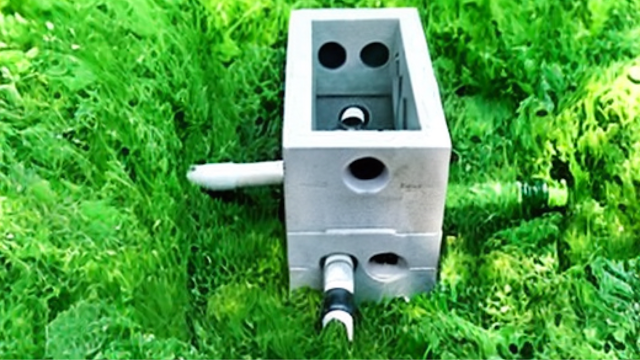
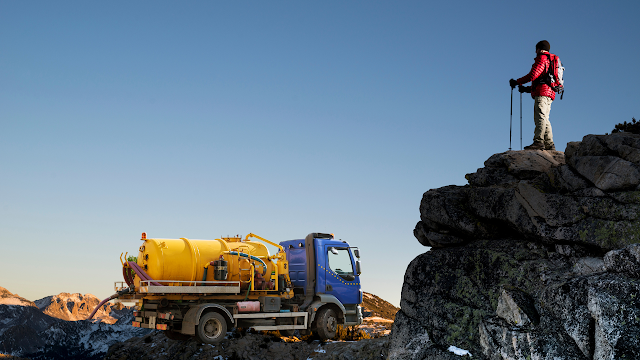
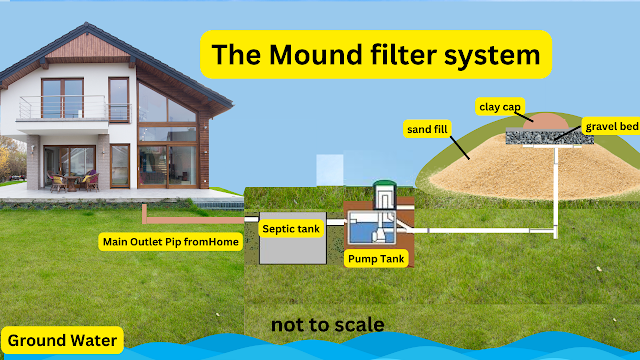
.png)

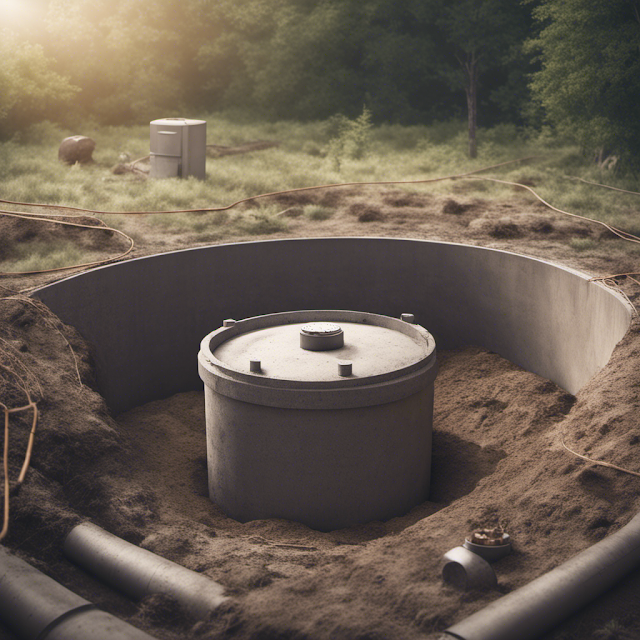
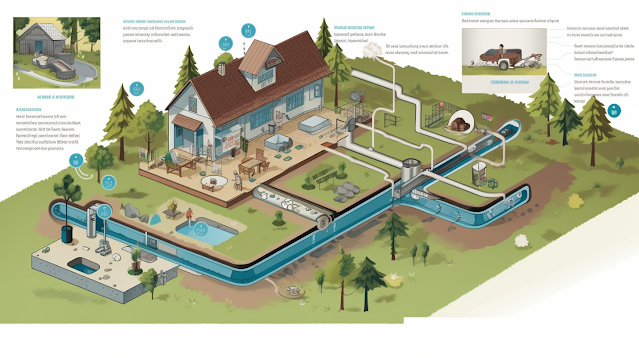
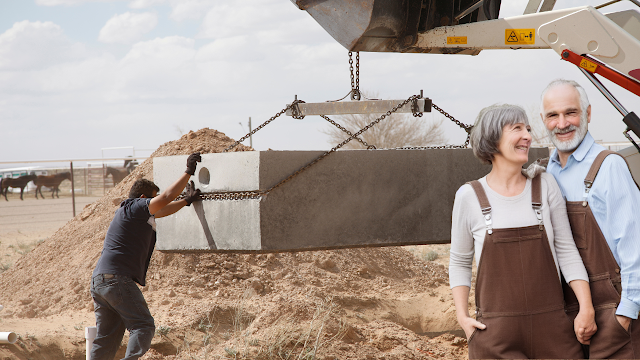


Comments
Post a Comment